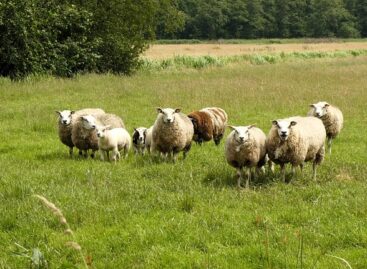HUN-REN: Human impact on biodiversity is greater than previously thought
Human impact on biodiversity is even greater than previously thought – this was revealed by an international study, during which researchers compared the communities of living organisms in approximately 50 thousand areas affected by humans and the same number of untouched regions.

The diversity of nature is decreasing at a dramatic pace, the Earth’s wildlife is changing faster and faster, the number of species is decreasing, species communities are transforming, all of this is driven by human activity – the researchers concluded based on their comprehensive study, in which the HUN-REN Balaton Limnological Research Institute (HUN-REN BLKI) also participated – according to a statement from the HUN-REN Hungarian Research Network on Thursday. The study presenting the researchers’ results was published on March 26 in the journal Nature.
As they wrote, studies on biodiversity loss have often previously focused on a specific location, period or human impact
However, an international research team, including Kálmán Tapolczai, a scientific fellow at HUN-REN BLKI, has now examined almost 73,000 studies published worldwide on the topic, and collected data from more than 2,100 of these studies that were suitable for further analysis. As a result, they compared the communities of organisms in about 50,000 areas affected by humans and the same number of untouched regions.
The study was not limited to just one group of organisms or habitat type
The research included terrestrial, freshwater and marine ecosystems, as well as microorganisms, fungi, plants, invertebrates, reptiles, amphibians, fish, birds and mammals. The researchers were thus able to examine the changes in the structure of living communities in the light of human impacts on a global scale, with particular attention to species decline and homogenization, during which communities in the affected areas become more homogeneous and less diverse. The researchers examined the five most important negative impacts of human activity: habitat transformation (deforestation, urbanization, expansion of agricultural areas), exploitation of natural resources (fishing, hunting, excessive logging), climate change, pollution (chemicals, plastic waste, water and air pollution) and the spread of invasive species.
The research clearly showed that these factors have a detrimental effect on all living groups and ecosystems globally
“The results are alarming: in areas affected by humans, the number of species is on average 20 percent lower than in untouched places. At the local level, the greatest losses are suffered by vertebrates – such as amphibians, reptiles and mammals – as their smaller populations are at greater risk of extinction. But it is not only the number of species that is decreasing: human impacts are also radically changing the composition of species in certain habitats. For example, due to climate change, high-altitude plants may be displaced by lower-lying species, while some organisms may disappear completely from a region,” the researchers warn. The research showed particularly large community changes in the case of microorganisms and fungi, while this effect turned out to be more moderate in the communities of mammals, fish, reptiles and amphibians. The results support theories that smaller organisms, which are typically more species-rich, have shorter life cycles and are more dispersive, respond more quickly to environmental changes and show stronger community-level changes. If key species in an ecosystem disappear, it can have a fatal impact on the functioning of the entire system, the researchers warn. As they wrote, in addition to scientific results, the research is also a cry for help, pointing out that the decline in biodiversity is not only about the disappearance of species, but also about the complete transformation of ecosystems, which negatively affects the functioning of these systems or those ecosystem services without which human civilization as we know it cannot function. The study therefore draws the attention of decision-makers to the need for urgent measures to protect biodiversity.
MTI
Related news
Adaptation and knowledge have become the key issues of climate change
🎧 Hallgasd a cikket: Lejátszás Szünet Folytatás Leállítás Nyelv: Auto…
Read more >Zsófia Bánhegyi is the marketing, communications and public relations director of HUN-REN
🎧 Hallgasd a cikket: Lejátszás Szünet Folytatás Leállítás Nyelv: Auto…
Read more >Related news
(HU) Átadták a SIRHA Budapest 2026 Innovációs Termékverseny díjait
🎧 Hallgasd a cikket: Lejátszás Szünet Folytatás Leállítás Nyelv: Auto…
Read more >How does the forint exchange rate affect consumer prices?
🎧 Hallgasd a cikket: Lejátszás Szünet Folytatás Leállítás Nyelv: Auto…
Read more >HELL CITY has arrived, led by Michele Morrone
🎧 Hallgasd a cikket: Lejátszás Szünet Folytatás Leállítás Nyelv: Auto…
Read more >








